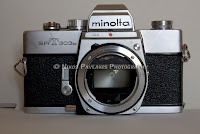This section is full with some dirty tricks mostly discovered through experience. I am open to suggestions, your name will also tag the tip, so e-mail them!
Minimum shutter speed of camera while handheld should generally be the same but reversed with the lens' mm in order to compose a steady shot.
e.g. lens at 300mm, minimum shutter speed should be 1/300 or less
lens at 28mm, minimum shutter speed 1/30 and so on
Sunsets: always decrease exposure by 1 or 2 stops (take both, you'll thank me later).
Aim for black shadows against sunset. Find a large theme, try to omit the sun if you can.
Moonlight scenes: decrease exposure by 2 stops or more depending on the moon size if you want to get the texture inside the moon. Try to omit the moon or very bright objects against very dark background or try to include bright backgrounds while shooting bright subjects.
When tripod is not available and you HAVE to shoot, increase your ISO speed ratings accordingly. Modern cameras have a tolerance of 400, but you can also shoot at 800 with barely any noticeable noise for web use (resized photo to 1600 on the longest side).
Best bokeh is accomplished using long lens, ideal 200mm-300mm and shooting distance over 5 metres away from the subject. This way the subject stands out and the background stays out of focus.
Landscapes: You'll want every meter to be as sharp as possible, use lens between 11mm and 50mm and appertures from f7 to f16. More is a waste in terms of quality (difraction is affecting all lens and softens the image as apperture goes above f18), less is a waste in terms of sharpness and Depth of Field (distance from near to far which is sharp). Another trick is to lower your tripod to 30-40cm from the ground to increase the "landscape effect".
e.g. lens at 300mm, minimum shutter speed should be 1/300 or less
lens at 28mm, minimum shutter speed 1/30 and so on
Sunsets: always decrease exposure by 1 or 2 stops (take both, you'll thank me later).
Aim for black shadows against sunset. Find a large theme, try to omit the sun if you can.
Moonlight scenes: decrease exposure by 2 stops or more depending on the moon size if you want to get the texture inside the moon. Try to omit the moon or very bright objects against very dark background or try to include bright backgrounds while shooting bright subjects.
When tripod is not available and you HAVE to shoot, increase your ISO speed ratings accordingly. Modern cameras have a tolerance of 400, but you can also shoot at 800 with barely any noticeable noise for web use (resized photo to 1600 on the longest side).
Best bokeh is accomplished using long lens, ideal 200mm-300mm and shooting distance over 5 metres away from the subject. This way the subject stands out and the background stays out of focus.
Landscapes: You'll want every meter to be as sharp as possible, use lens between 11mm and 50mm and appertures from f7 to f16. More is a waste in terms of quality (difraction is affecting all lens and softens the image as apperture goes above f18), less is a waste in terms of sharpness and Depth of Field (distance from near to far which is sharp). Another trick is to lower your tripod to 30-40cm from the ground to increase the "landscape effect".
